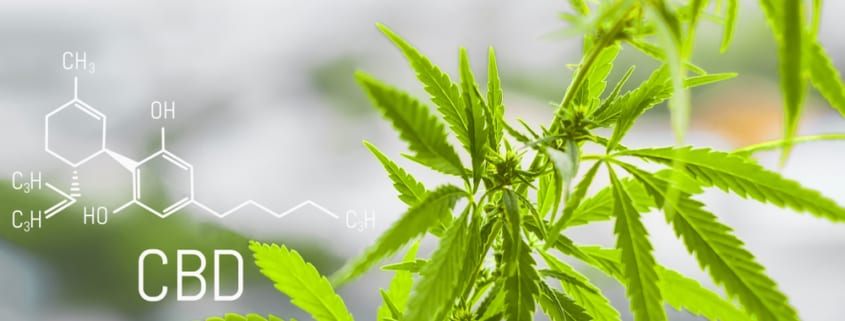The growth of the CBD industry is nothing short of spectacular. Just a few short years ago, “cannabidiol” (CBD), was an obscure cannabinoid only known to select groups of cultivators and scientists. In like fashion, hemp was federally illegal and only valued for its fibers and seeds.
Today, things look much different for hemp and CBD. The worldwide CBD market was valued at an astounding $2.8 billion in the year 2020. Even more, global hunger for “everything CBD” has stimulated the growth of a massive hemp industry, including growers, processors, and retail stores. While such amazing growth is exciting, it is easy to lose sight of the fact that CBD helps people.
People from around the world use CBD to treat both physical and mental ailments. Yet, the FDA has only approved a single CBD medicine – that being epidiolex. This drug is made from synthetic CBD and is prescribed exclusively for seizure patients. Beyond epidiolex, our understanding of the cannabinoid from new CBD research and patient testimonials.
While we continue to wait on formal FDA recognition of CBD, there are a myriad of intriguing findings that show great promise for the cannabinoid. High Grade Hemp Seed is excited to see where CBD research studies will lead us in the future.
A Growing Understanding of CBD and the Human Body
The cannabis plant contains over 100 chemical compounds, known as cannabinoids. Because hemp has been illegal to grow in the United States for so long, there is precious little research on many of hemp’s medical properties. That is quickly changing.
CBD research studies are revealing a growing list of potential health benefits. The width and breadth of these benefits likely has to do with how CBD interacts with the body’s endocannabinoid system.
Introducing the Endocannabinoid System
One of the most exciting advances that has come directly from cannabinoid research has been the discovery of a biochemical communication system within the human body known as the endocannabinoid system.
Scientists are just beginning to understand this intricate and complex system, which helps to regulate:
- Mood
- Sleep
- Appetite
- Memory
- Fertility
Endocannabinoid receptors are found throughout the body and have been shown to respond to cannabinoids, like CBD. This can help explain why CBD research has shown so many varied effects throughout the body.
What are the health benefits of CBD? Researchers are just starting to answer that question. Here is what we know about the potential medical benefits of CBD.
1. CBD and Pain Research
Many CBD advocates swear that CBD makes their aches and pains disappear, but what does the science actually say on this matter? The available research does seem to support the fact that CBD can offer pain-relieving properties. A double-blind study of 58 patients with rheumatoid arthritis found that patients who took Sativex, a nasal spray that includes both THC and CBD, reported significantly less pain than the placebo group. Additionally, a study on rats found that rodents who received injections of CBD seemed to feel less pain in response to surgical incisions.
What is behind the pain-relieving properties of CBD? It all comes back to the endocannabinoid system. Researchers hypothesize that CBD (and possibly other cannabinoids) may impact endocannabinoid receptor activity and interact with neurotransmitters in the brain responsible for feeling pain. Writing for the Harvard Health blog, Dr. Grinspoon explains that CBD has been shown to impact both inflammatory and neuropathic pain, which are the two most difficult types of chronic pain to treat.
Importantly, CBD could offer relief for pain sufferers who have fallen victim to the opioid epidemic. According to the U.S. Department of Health and Human Services website, “In 2019 … 9.7 million people misused prescription pain relievers.” Unfortunately, many of these people got introduced to painkillers through a legitimate medical need, which eventually led to addiction. If CBD could help a fraction of these people find relief from their pain, it would be a wild success.
2. CBD and Anxiety Research
With a third of Americans now showing signs of clinical anxiety or depression, it’s more important than ever to understand what treatment options are available, especially for people who prefer natural remedies. In some cases, CBD may be the answer.
A double-blind study of 57 Brazilian men found that those who took 300 mg. of CBD felt significantly less anxiety during a simulated public speaking test than those who took a placebo. What’s interesting is that the same effects were not seen in subjects who took 150 mg. of CBD or 600 mg. of CBD, so dosing is an important consideration.
In a fascinating CBD case study in The Permanente Journal, researchers explain how CBD oil helped a young girl with post-traumatic stress disorder lower her anxiety and improve her sleep. Similarly, in the United States, many military veterans report relief from PTSD symptoms through the use of CBD.
3. CBD and Epilepsy
CBD has long since been proven to be an effective treatment for epilepsy. The only FDA-approved CBD drug in existence, epidiolex, is regularly prescribed to treat cases of Dravet syndrome and Lennox-Gastaut syndrome. Both severe childhood epilepsy conditions greatly hinder the overall quality of life for sufferers. Due to the fact many of these patients are resistant to anti-seizure medications, CBD has given them a new lease on life through epidiolex.
One of the most well-researched medical benefits of CBD is its ability to effectively treat symptoms of epilepsy. CBD has been used in cases of Dravet syndrome and Lennox-Gastaut syndrome, severe childhood epilepsy conditions that are often resistant to anti-seizure medications. In a landmark double-blind study published in the New England Journal of Medicine, researchers found that an oral solution of CBD was able to lower seizures in children with Dravet syndrome. The median frequency of seizures per month decreased from 12.4 to 5.9 in the study group, while the decrease in seizures in the control group was minimal. It is studies like these that have made CBD increasingly accepted in the eyes of mainstream medicine.
4. CBD and Multiple Sclerosis
Nearly one million people in the United States over the age of 18 live with multiple sclerosis, a disease where the immune system eats away at nerve coverings, causing disabling nerve damage throughout the body.
A tragic hallmark of the disease is a muscle spasticity, which happens when the muscles stiffen and can’t be relaxed or stretched. Muscle spasticity can impede movement and speech and even make it difficult or impossible for a person to walk. A study that used Sativex on a group of 276 people with MS found that nearly 75% of the research subjects reported less muscle spasticity, offering needed relief and increased quality of life.
5. CBD and Heart Health
Can CBD health benefits include an improvement in overall health and wellness? One promising study points to the fact that CBD may help lower blood pressure. High blood pressure is an indicator of heart disease and can lead to strokes and heart attacks.
This small CBD case study recruited nine healthy men to take a single 600 mg. dose of CBD oil. Even after just one dose, the men showed a lower resting blood pressure when compared to the placebo group. The men who took the CBD oil also showed a lower increase in blood pressure when put under a stress test.
6. CBD and Cancer Treatment Symptoms
For years, doctors and scientists have been searching for ways to help cancer feel better during treatment. Chemotherapy often leaves patients feeling weak, nauseated, and in pain. THC has long been used to help counteract these unpleasant cancer treatment side effects, but can a non-intoxicating cannabinoid like CBD also help?
A small, double-blind study published in the British Journal of Clinical Pharmacology recruited patients undergoing chemotherapy treatment and gave them a combination of THC and CBD. Patients who received the THC and CBD reported fewer side effects from the chemotherapy than the placebo group.
7. Other Exciting Potential CBD Health Benefits
Many of the most exciting CBD research is still in the early stages. These studies have been conducted on test tube samples or in animals. While these avenues of research have a ways to go until they reach human trials, the results are still worth mentioning. These studies go to show that there is still so much we have to learn about CBD and how it affects the human body.
-
CBD and Cancer
Don’t believe anyone who says that CBD can cure cancer; however, test tube studies and animal studies have found that CBD can inhibit the spread of breast, prostate, colon, and lung cancer. Much more research must be done in this area, so keep your eyes peeled for more advanced studies in the future.
-
CBD and Substance Abuse
Substance abuse and addiction are a dark reality for an estimated 22 million Americans. So many struggle and fail to break free of their addictions. CBD may be able to help. A review of 14 studies, including animal studies and pre-clinical human studies, found that CBD may offer therapeutic properties related to addictions to opioids, cocaine, and psychostimulants. Some data even suggests CBD could help with tobacco addiction.
-
CBD and Diabetes
Diabetes is a disease that affects 34.2 million people in the U.S. and can dramatically lower quality of life and lifespan. A promising study of diabetic rats found that CBD treatment lowered the incidence of diabetes by 56% and also reduced inflammation related to diabetes.
-
CBD and Acne
Sebum is an oily substance secreted by the skin. When the skin produces too much sebum, it can block pores and lead to acne. Those with blemished skin can take heart in a test tube study that found CBD oil stopped sebaceous gland cells from creating too much sebum. The CBD also had an anti-inflammatory effect.
What Is the Future of CBD Research?
The CBD industry is here to stay. Yet, while thousands of patients report profound positive impacts from CBD, we are still waiting on formal approval from the FDA. As the CBD continues to gain mainstream acceptance, many hope it will eventually replace harmful pharmaceutical drugs such as painkillers and sleeping pills. However, we must be patient as the medical field works towards eventual approval through its CBD research studies.
Whether you are a medical patient curious about CBD, or a hemp grower interested in CBD seeds, it worthwhile studying the potential applications of the cannabinoid. In doing so, you can make educated decisions on whether to consume CBD or grow CBD hemp.
At High Grade Hemp Seed, you can bet we’ll keep an eye on all the emerging CBD research studies for you. In the meantime, contact us today to learn about our many high CBD strains of hemp.



